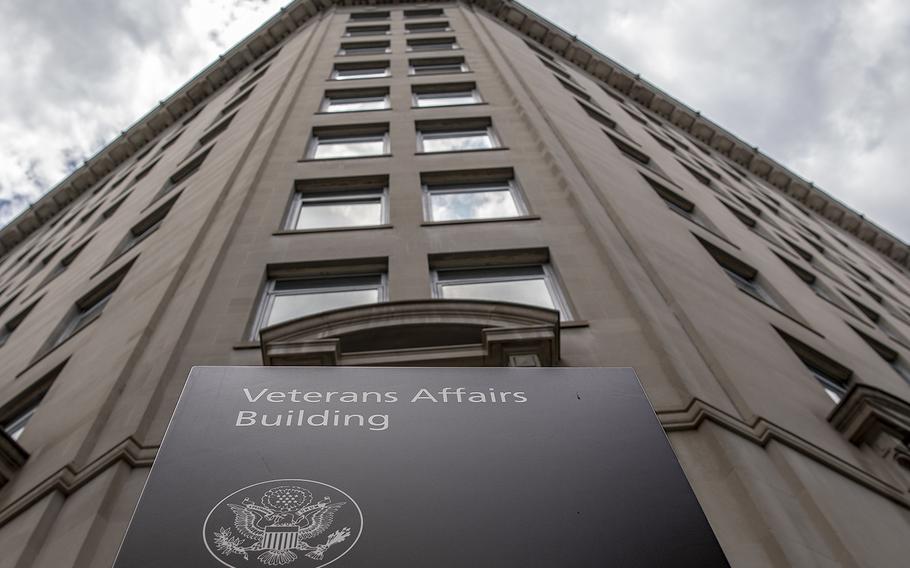
The headquarters building of the Department of Veterans Affairs as seen on June 28, 2018, in Washington, D.C. (Carlos Bongioanni/Stars and Stripes)
WASHINGTON — The Department of Veterans Affairs will designate specialized offices to handle veterans’ claims of military sexual trauma in an effort to reduce the rate that the claims are denied, the agency announced Wednesday.
Government watchdogs have recently criticized the agency’s handling of claims for military sexual trauma. The VA Office of Inspector General and the Government Accountability Office have said that the claims are especially complex and suggested they be handled by processors who receive special training.
The VA began the process May 3 of sending all the claims to five offices across the U.S. where processors are undergoing more training. Thomas Murphy, acting undersecretary for benefits at the VA, said the change would be complete before Sept. 30, the end of the fiscal year. He made the announcement Wednesday at a hearing of the Senate Veterans’ Affairs Committee.
“The VA is keenly aware that not all claims are alike, and some claims — notably military sexual trauma — require additional focus and handling in an accurate and compassionate manner,” Murphy said. “This centralization will deliver the higher quality, more consistent decisions that are so important in these types of claims.”
The claims will be handled by processors in Lincoln, Neb.; Hartford, Conn.; Columbia, S.C.; New York; and Portland, Ore.
In 2018, the VA IG reported that the agency had denied VA benefits to thousands of veterans without performing due diligence to consider claims of military sexual trauma.
Inspectors blamed the incorrect denials on flawed, inadequate training for examiners, who comb through veterans’ records for signs of sexual trauma and make decisions about their claims. The rejection potentially caused stress and psychological harm, the IG said at the time.
The Government Accountability Office reported in March that some of those issues persisted. The GAO found that claims for military sexual trauma were returned for correction 10% of the time – twice the rate of other claims. Processors cited difficulty finding evidence in veterans’ records to support the claims.
Carmen McGinnis, a national service officer with Disabled American Veterans, is a survivor of military sexual trauma who helps other survivors apply for VA benefits. McGinnis told lawmakers Wednesday that VA processors often deny claims because they fail to recognize the signs of military sexual trauma in veterans’ records. Signs could include weight gain or loss over a short period of time, dental records that reveal binging and purging, as well as unexplained reports of stomachaches, heartburn or onset of headaches, she said.
“It’s not enough for VA to say they believe survivors, but then subsequently deny their claim for lack of evidence or fail to provide the necessary supports to handle these very specialized cases,” McGinnis said. “VA simply must do better by veterans who have experienced MST and have chronic conditions related to the assault.”
McGinnis applauded the VA’s effort to send the claims to processors who will specialize in them. She asked that lawmakers oversee the consolidation efforts and ensure that there’s enough staff at the five locations to handle the complex claims.
In addition to consolidating the claims with specialized processors, the VA will improve training and increase quality control, Murphy said.
wentling.nikki@stripes.com Twitter: @nikkiwentling